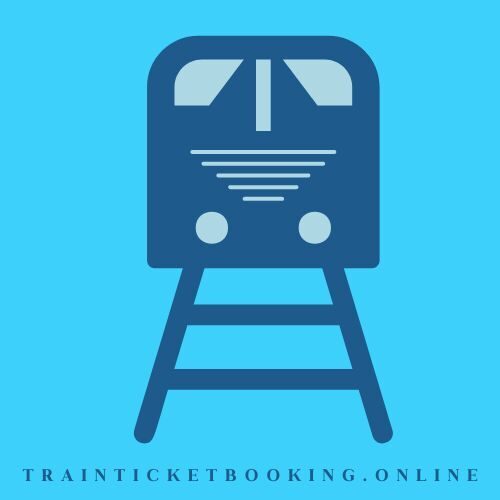Booking train tickets online has revolutionized the way we secure our travel plans. However, it’s essential to be aware of any potential additional fees that may be associated with online ticket bookings.
In this blog post, we will explore the common types of additional fees that travelers may encounter when booking train tickets online.
Understanding these fees will help you make informed decisions and avoid any surprises during the booking process.
Booking Fees
Some train operators or booking platforms may charge a booking fee for each train ticket purchased online. This fee covers administrative costs and transaction processing. Booking fees can vary depending on the train operator or platform, and they are usually non-refundable. It’s important to check if there are any booking fees before finalizing your online ticket purchase.
Reservation Fees
Certain train services, such as high-speed or long-distance trains, may require a reservation in addition to the ticket. A reservation fee covers the cost of reserving a seat or berth on the train. This fee is common in countries like Europe, where seat reservations are necessary for specific routes or train types. Check the reservation requirements and associated fees when booking online.
Seat Upgrade Fees
If you wish to upgrade your seat to a higher class, some train operators may charge a seat upgrade fee. This fee allows passengers to enjoy additional amenities, such as more legroom, enhanced comfort, or access to premium services. Seat upgrade fees vary depending on the train operator and the class you wish to upgrade to. Consider this fee if you are interested in a more luxurious travel experience.
Luggage Fees
While most train journeys allow passengers to bring luggage within specified limits, some train operators may charge additional fees for excess or oversized baggage. These fees are designed to manage luggage capacity and ensure a comfortable travel experience for all passengers. Check the luggage allowance and associated fees when booking train tickets online to avoid any surprises at the station.
Payment Processing Fees
In addition to the various fees associated with booking train tickets online, it’s important to be aware of payment processing fees that may apply. These fees are charged by payment processors, such as credit card companies or online payment gateways, for handling the transaction between the customer, train operator, and booking platform. Payment processing fees help cover the costs of maintaining secure payment systems and processing financial transactions.
Payment processing fees can be either a fixed amount or a percentage of the total transaction value. The specific fee structure may vary depending on the train operator or the payment processor used. It’s crucial to check for any payment processing fees before finalizing your online train ticket purchase.
Here are some key points to consider regarding payment processing fees:
- Fixed Amount Fees: Some train operators or booking platforms charge a fixed amount as a payment processing fee for each transaction. For example, there may be a flat fee of $2 or $5 per booking, regardless of the ticket price. These fixed fees are typically disclosed during the payment process.
- Percentage-Based Fees: In other cases, payment processing fees are calculated as a percentage of the total transaction value. This means that the fee increases proportionally with the ticket price. For instance, a 2% processing fee on a $100 ticket would amount to $2. Percentage-based fees are commonly applied by online payment gateways or credit card companies.
- Different Payment Options: It’s worth noting that the availability of payment options may impact the presence of processing fees. For example, if you choose to pay by credit card, there may be a processing fee associated with the transaction. However, if you use a direct bank transfer, the fee might be waived or lower.
- Transparent Disclosure: Reputable train operators and booking platforms strive to provide transparent information regarding payment processing fees. They should clearly state any applicable fees during the booking process, allowing customers to make informed decisions.
Remember to review the payment processing terms and conditions of the train operator or booking platform before finalizing your booking. Paying attention to these details will allow you to assess the overall cost of your train ticket and make an informed decision regarding the payment method that best suits your preferences and budget.
Cancellation or Change Fees
When booking train tickets online, it’s crucial to understand the cancellation and change policies of the train operator or booking platform. In many cases, there may be fees associated with modifying or canceling your booking after it has been made. These fees can vary depending on several factors, including the train operator, fare type, and the timing of the cancellation or modification.
Here are key points to consider regarding cancellation or change fees:
- Fare Types: Train operators often offer different fare types, each with its own rules and associated fees. Common fare types include non-refundable, semi-flexible, and fully flexible fares. Non-refundable fares usually have the highest cancellation or change fees, while semi-flexible and fully flexible fares offer more flexibility with lower fees or no fees at all.
- Time of Cancellation or Modification: The timing of your cancellation or modification can significantly impact the fees incurred. Many train operators have a tiered fee structure based on how close the cancellation or modification is to the departure time. The closer you are to the departure date, the higher the fees are likely to be. Some train operators may also have specific deadlines or cut-off times for changes or cancellations without incurring fees.
- Refundable vs. Non-refundable Tickets: Non-refundable tickets generally come with higher cancellation or change fees or may have no refund options at all. Refundable tickets, on the other hand, typically have lower or no fees associated with cancellations or changes. It’s important to carefully consider the fare type and your travel plans before selecting a ticket to align with your flexibility needs.
- Ticket Flexibility: Certain train tickets offer more flexibility with lower change or cancellation fees. For instance, some tickets may allow you to make changes or cancel up to a certain number of hours or days before the departure time with minimal fees. Flexibility options vary by train operator and fare type, so it’s essential to review the specific terms and conditions associated with your ticket.
- Refund Policies: In addition to cancellation or change fees, it’s important to understand the refund policies of the train operator or booking platform. Refunds may be provided in the form of cash, vouchers, or credits toward future bookings. Refund policies can differ based on the fare type and train operator, so be sure to familiarize yourself with the specific terms applicable to your ticket.
- Exemptions or Waivers: In certain cases, train operators may provide exemptions or waivers for cancellation or change fees due to exceptional circumstances. These may include medical emergencies, natural disasters, or other unforeseen events. Be aware of any provisions or procedures for requesting exemptions or waivers, and keep any necessary documentation or proof handy if you need to invoke such exemptions.
It’s crucial to review the cancellation and change policies before booking your train ticket online. By understanding the associated fees and conditions, you can make informed decisions and be prepared for any potential changes to your travel plans. Remember to factor in these fees when comparing different ticket options to ensure you select the one that aligns best with your flexibility needs and budget.
Conclusion
When booking train tickets online, it’s important to be aware of any cancellation or change fees that may apply. These fees can vary based on the fare type, train operator, and the timing of the cancellation or modification.
Take the time to review the cancellation and change policies of the train operator or booking platform to understand the potential fees and conditions associated with modifying or canceling your ticket.
By being informed, you can make decisions that align with your travel plans and minimize any financial impact of changes or cancellations.




